Turkey, a country that straddles two continents, is a fascinating blend of East and West. From the bustling streets of Istanbul to the ancient ruins of Ephesus, the surreal landscapes of Cappadocia, and the pristine beaches of the Turkish Riviera, Turkey offers a diverse array of experiences for travelers.
Exploring Turkey’s Major Cities and Regions
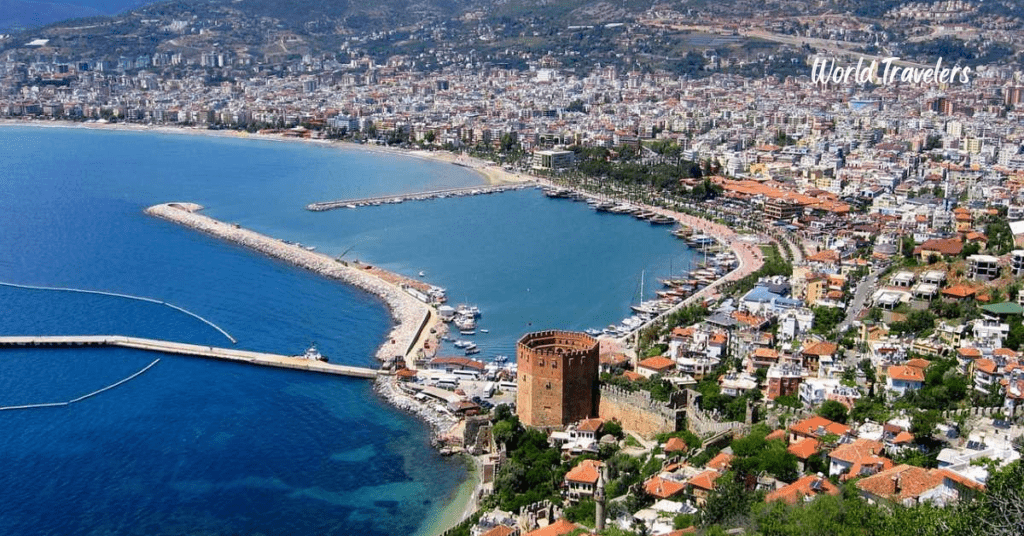
Turkey’s geographical diversity offers a range of experiences that cater to every type of traveler. Explore some of the most captivating cities and regions in Turkey, each with its unique charm, history, and attractions.
Istanbul: The Crossroads of Europe and Asia
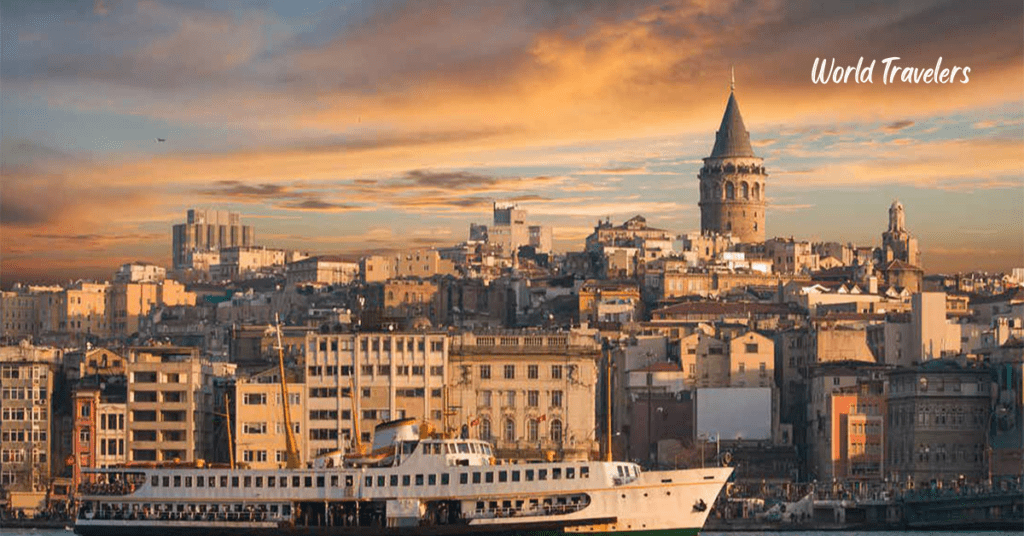
Istanbul, the largest city in Turkey, is a vibrant cultural and historical hub. As a city that straddles two continents, it offers a unique blend of ancient and modern attractions. Whether you’re wandering through the bustling Grand Bazaar, marveling at the architectural wonders of the Hagia Sophia, or cruising along the Bosphorus, Istanbul is a city that never ceases to amaze.
Originally built as a cathedral, later converted into a mosque, and now a museum, Hagia Sophia is an architectural masterpiece. Topkapi Palace is the former residence of Ottoman sultans, this palace complex offers a glimpse into the opulent lifestyle of the Ottoman Empire.
Blue Mosque (Sultan Ahmed Mosque is Known for its stunning blue tiles and impressive architecture, this mosque is a must-visit. Grand Bazaar is one of the largest and oldest covered markets in the world, offering a wide array of goods from spices to jewelry. Basilica Cistern is an ancient underground water storage system with a unique and mysterious atmosphere.
Cappadocia: A Surreal Landscape
Cappadocia, located in central Turkey, is renowned for its unique landscape of fairy chimneys, cave dwellings, and ancient rock formations. This region is also famous for its hot air balloon rides, offering spectacular views of the otherworldly terrain.
Göreme Open-Air Museum, a UNESCO World Heritage site featuring rock-cut churches with stunning frescoes. Experience the breathtaking landscape from above with a sunrise balloon ride. Explore ancient subterranean cities like Derinkuyu and Kaymakli, which were used as shelters during times of conflict.
Pasabag (Monk’s Valley) is known for its unique mushroom-shaped rock formations. Cappadocia is famous for its cave hotels, providing a unique and authentic experience. Luxury Museum Hotel, Argos are available in Cappadocia. The best way to explore Cappadocia is by renting a car or joining a guided tour. There are also local buses that connect major towns and attractions.
Navigating Transportation in Turkey

Navigating Turkey can be an adventure in itself, given the country’s vast size and diverse landscapes. Whether you’re exploring bustling cities, ancient ruins, or serene beaches, understanding the various transportation options available will make your journey smoother and more enjoyable.
Air Travel
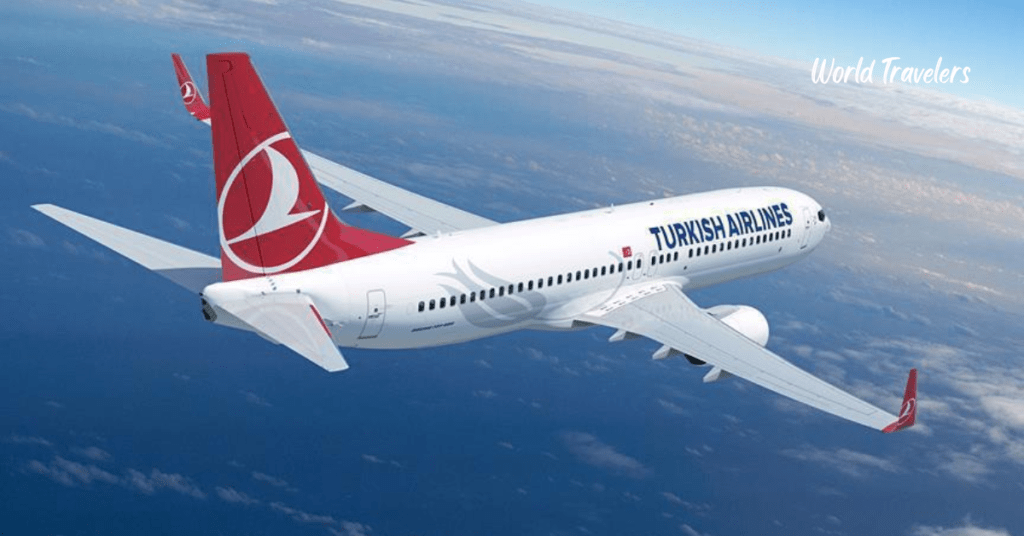
Given Turkey’s size, flying is often the fastest and most convenient way to travel between distant regions. Turkish Airlines, Pegasus Airlines, and AnadoluJet are the primary carriers offering frequent domestic flights that connect major cities and tourist destinations.
Airlines include Turkish Airlines, Pegasus Airlines, AnadoluJet. Its major Airports are Istanbul Airport (IST), Sabiha Gökçen International Airport (SAW), Antalya Airport (AYT), Esenboğa Airport (ESB), İzmir Adnan Menderes Airport (ADB).
Flying significantly reduces travel time between distant cities. Multiple daily flights are available, making it easy to plan your itinerary. Modern aircraft and in-flight amenities enhance the travel experience. Be mindful of baggage allowances and fees for excess luggage. Secure better prices and availability by booking early, especially during peak travel seasons.
Train Travel
Turkey’s railway network offers a scenic and comfortable way to travel between major cities, particularly in the western part of the country. While not as extensive as the bus network, trains provide a relaxing and often picturesque journey.
From Istanbul to Ankara, the high-speed train (YHT) covers this route in approximately 4.5 hours. From Ankara to Konya, another high-speed route taking about 1.5 hours. From Istanbul to Eskişehir it takes approximately 3 hours by high-speed train
The rail network is less extensive in eastern Turkey. High-speed trains can fill up quickly, so it’s advisable to book in advance. Reserve seats, especially for high-speed trains, to ensure availability. Train schedules can vary, so plan your trip accordingly. While some trains have dining cars, bringing your snacks can be convenient.
Cultural Experiences in Turkey
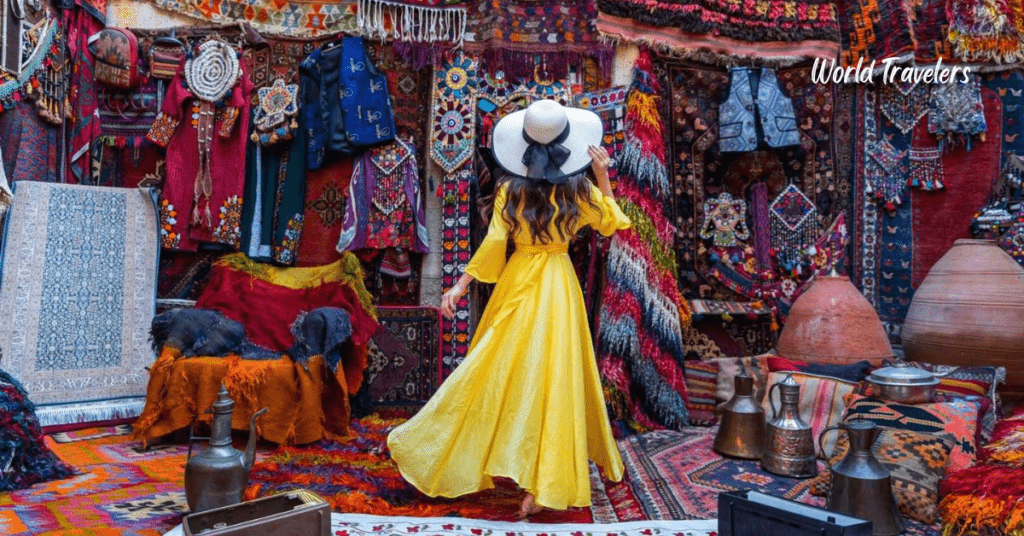
Turkey’s rich cultural heritage is a testament to its position as a crossroads of civilizations. From the remnants of ancient empires to the vibrant traditions still practiced today, Turkey offers a wealth of cultural experiences.
Festivals and Celebrations
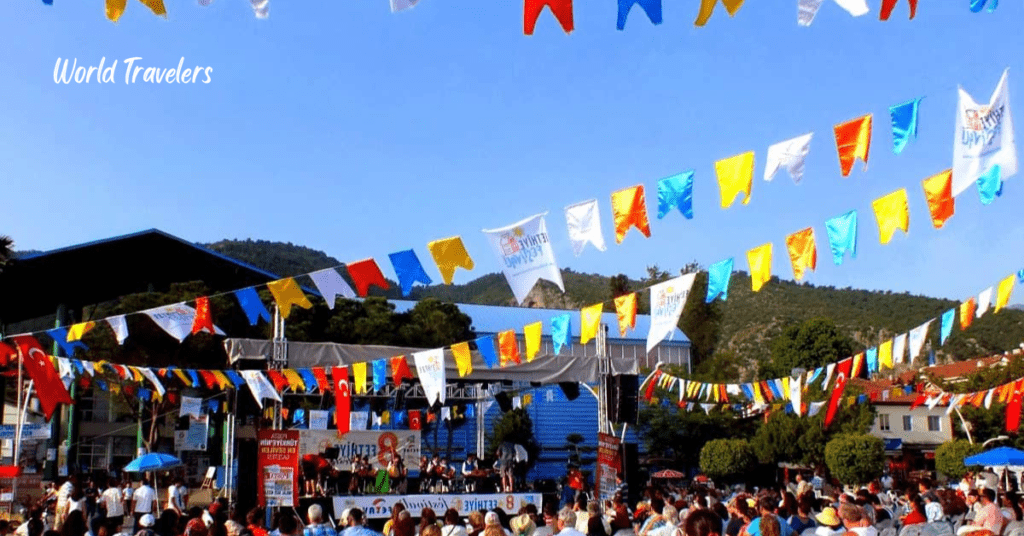
Turkey hosts a variety of festivals throughout the year, celebrating everything from religious events to local traditions and arts. Participating in these festivals can provide a deeper understanding of Turkish culture and a chance to interact with locals.
The holy month of fasting observed by Muslims worldwide. In Turkey, the end of Ramadan is marked by the celebration of Eid al-Fitr (Şeker Bayramı), a festive time with family gatherings and feasting. Another major Islamic holiday, known as the Festival of Sacrifice, commemorating Abraham’s willingness to sacrifice his son. It’s a time for charity, feasting, and community.
International Istanbul Film Festival, held annually in April, it showcases Turkish and international films, attracting cinema lovers from around the world. Cappadocia Hot Air Balloon Festival is a spectacular event where the skies of Cappadocia are filled with colorful hot air balloons. Antalya International Sand Sculpture Festival is a unique festival where artists create intricate sand sculptures along the beaches of Antalya.
Turkish Cuisine
Turkish cuisine is a delightful blend of flavors and influences from various cultures, offering a gastronomic journey through its diverse regions. Kebabs including doner kebab, shish kebab, and Adana kebab, these grilled meat dishes are a staple of Turkish cuisine.
A selection of small dishes served as appetizers, such as hummus, baba ghanoush, and dolma (stuffed grape leaves). Pide is often referred to as Turkish pizza, this flatbread comes with various toppings, including cheese, meat, and vegetables. Lahmacun is another form of Turkish pizza, topped with minced meat, onions, and spices. Baklava, a rich, sweet pastry made of layers of filo filled with chopped nuts and sweetened with syrup or honey.
Ankara is known for its lamb dishes and tavuk göğsü, a chicken breast dessert. Gaziantep is famous for its baklava and other sweet treats, as well as its spicy kebabs. Antalya is known for its seafood dishes and piyaz, a bean salad with tahini sauce. Istanbul offers a cosmopolitan mix of Turkish and international cuisine, with specialities like fish sandwiches (balık ekmek) along the Bosphorus.
Practical Tips for Travelers in Turkey

Traveling to Turkey is an exciting adventure, filled with diverse experiences, rich history, and vibrant culture. To ensure your trip is enjoyable and hassle-free, it’s important to be well-prepared with practical information.
Health and Safety
Check with your healthcare provider about recommended vaccinations before traveling to Turkey. Common suggestions include Hepatitis A and B, typhoid, and routine vaccinations.
Ensure you have comprehensive travel insurance that covers medical expenses, including emergency evacuation. Pharmacies are widely available and can provide over-the-counter medications and prescriptions. Most pharmacists speak some English. Tap water is generally safe for brushing teeth, but it’s advisable to drink bottled water to avoid stomach issues.
Street food is generally safe, but it’s wise to eat at busy stalls with a high turnover of food to ensure freshness. Turkey is generally a safe country for tourists, but standard precautions apply. Be aware of your surroundings, especially in crowded places. Be vigilant in busy areas and tourist spots. Use a money belt or a crossbody bag with secure closures.
Be cautious of common scams targeting tourists, such as overpriced services or unsolicited assistance. The emergency number for police is 155, for medical emergencies it’s 112, and for fire it’s 110. Travel insurance is essential for covering unexpected events such as medical emergencies, trip cancellations, or lost belongings. Compare policies to find one that suits your needs and provides adequate coverage.
Budgeting and Money

The official currency is the Turkish Lira (TRY). It’s advisable to carry some cash for small purchases, especially in rural areas. ATMs are widely available in cities and towns. Most accept international cards, but check for fees and daily withdrawal limits. Major cards (Visa, MasterCard) are accepted in hotels, restaurants, and shops. American Express is less commonly accepted.
Exchange money at authorized exchange offices or banks for the best rates. Avoid exchanging money at airports due to higher fees. Accommodation prices vary widely. Budget travelers can find hostels and budget hotels for as little as $20-30 per night, while mid-range hotels cost around $50-100. Luxury hotels can range from $150 and up.
Street food and local eateries offer meals for $3-10. Mid-range restaurants cost about $10-30 per person, and fine dining can be $50 and above. Public transport is affordable, with metro and bus fares ranging from $0.50-2. Domestic flights can be economical if booked in advance. Major tourist sites have entrance fees. Budget around $5-20 per site. Museum passes can offer savings for multiple attractions.
Conclusion
Traveling through Turkey is a journey through time and culture, where every corner of the country tells a unique story. From the convenience of domestic flights that connect distant cities to the charm of traveling by train through scenic routes, each mode of transportation offers unique benefits. Understanding local transportation options, such as metros, trams, and taxis, helps ensure smooth travel within cities.
Cultural experiences are at the heart of any visit to Turkey, and this guide highlighted the country’s rich tapestry of festivals, culinary delights, and local traditions. Participating in religious festivals like Ramadan and Eid al-Adha or cultural events such as the International Istanbul Film Festival and the Cappadocia Hot Air Balloon Festival offers a deeper connection to Turkish life.
Traveling in Turkey is a rich and rewarding experience, offering a blend of historical wonders, cultural vibrancy, and natural beauty. By following the advice and tips outlined in this guide, you can navigate the complexities of travel in Turkey with confidence and ease.
Frequently Asked Questions
What are the best modes of transportation for getting around Turkey?
Turkey offers a variety of transportation options, including domestic flights for longer distances, an extensive bus network that connects cities and towns, and high-speed trains between major cities like Istanbul, Ankara, and Konya, making travel convenient and accessible.
Is it safe to travel by public transport in Turkey?
Public transport in Turkey is generally safe and reliable, with modern buses, metro systems, and trams operating in major cities, while taxis and rideshare services provide additional convenience for getting around urban areas.
How can I travel between Istanbul and Cappadocia?
Traveling between Istanbul and Cappadocia can be done by taking a domestic flight to Kayseri or Nevşehir, followed by a short bus or taxi ride, or by using overnight buses that offer a more scenic and cost-effective option.
Do I need a special pass for public transportation in Turkish cities?
In cities like Istanbul and Ankara, a travel card such as the Istanbulkart or the Ankarakart is necessary for accessing buses, trams, and metros, providing a hassle-free way to pay for multiple trips across the city’s public transport network.
What is the best way to explore the coastal regions of Turkey?
Exploring Turkey’s coastal regions is best done by renting a car for flexibility, or by using intercity buses and ferries to enjoy the scenic views of the Mediterranean and Aegean coastlines, stopping at charming seaside towns along the way.
